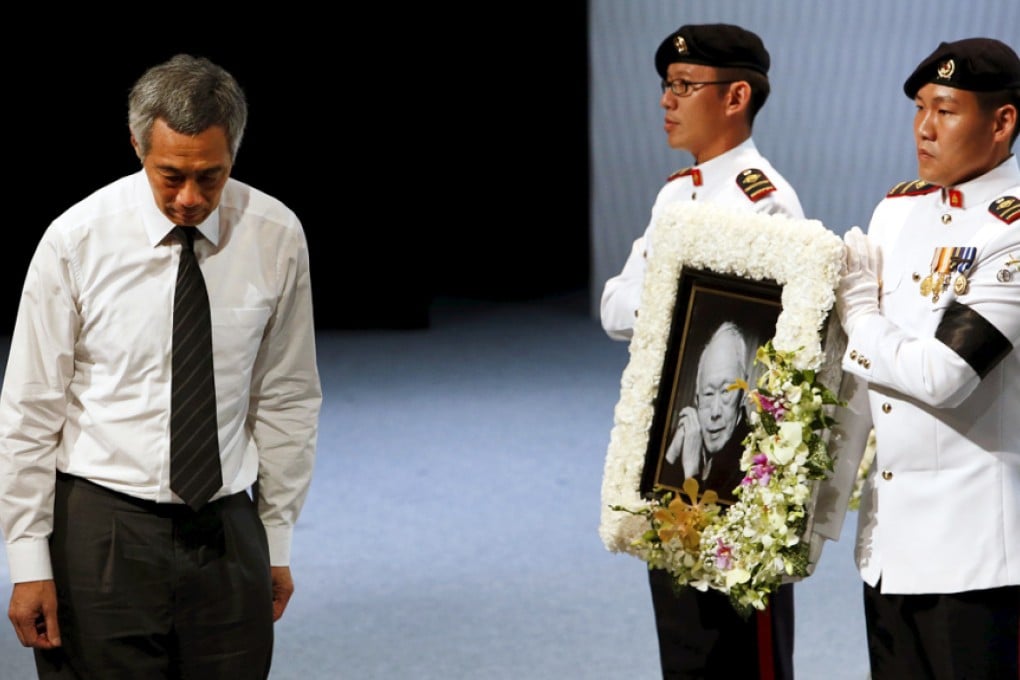Lee Kuan Yew eulogised as a 'leader, not a populist politician'
Eulogies describe a leader prepared to make unpopular decisions for good of the country

Lee Kuan Yew was a more caring and open leader than the severe and ruthless persona portrayed by critics, said those who mourned him at a state funeral yesterday.
Singapore Prime Minister Lee Hsien Loong and former prime minister Goh Chok Tong were among the 10 speakers who gave eulogies as they looked back at the life of the city-state's founding father, who died last Monday at the age of 91.
Another was former senior minister of state for education Sidek Saniff, who spoke of Lee as a "fatherly figure" looking after his well-being.
In 1979, he recalled, before he went on a trip to China with then finance minister Hon Sui Sen, Lee asked him if he had a coat and boots to protect him from the cold Chinese winter. When Saniff answered no and said he would buy them, Lee urged him not to and directed him to borrow the boots from Goh and the coat from another minister.
"So I went to China in borrowed things," said Saniff, who said the incident showed Lee's frugal side as well.
In his eulogy, Goh acknowledged the "long-term painful policies" that Lee implemented.